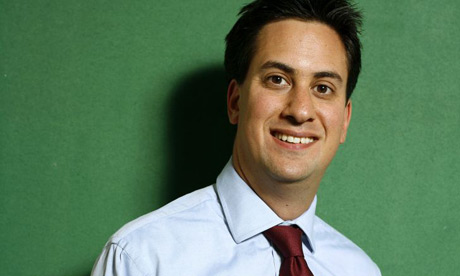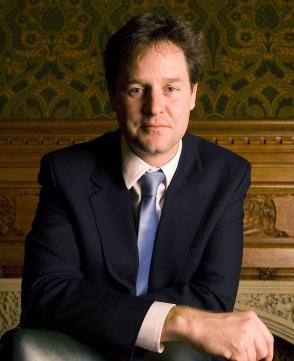The new forums will be named Coin Return (based on the most recent vote)! You can check on the status and timeline of the transition to the new forums here.
The Guiding Principles and New Rules document is now in effect.
British Politics: Quietly Insecure
WMain00 Registered User regular
Registered User regular
 Registered User regular
Registered User regular
Hello and welcome to the United Kingdom, land of the Queen, crumpets and tea! Where over there you're suffering from mad raving tea party members, useless Democrats and balmy Republicans, over here we're suffering from a Coalition, ho ho ho, what have you!
British Politics is made up of a parliament and a house of lords. Nobody cares about the house of lords, because it's made up of rich guys who aren't voted in by the public who will probably die of old age in the next...ooooh...10 minutes.
The house of parliament meanwhile is made up of three main parties, and some little parties inbetween.
Those three are:
The Conservatives
Leader:

The Conservatives for time immemorial have always represented the rich guys and the centre right wing side of politics. They are primarily frugal in spending money, and prefer privatising services over nationalising them in order to save money. Their policies and ideals have sprung the "laissaz faire" side of politics, in which the public has to look after itself rather than look to the Government for help.
The last time they were in power they almost destroyed Britain with ruthless cuts, shut downs and demolishings of entire industrial areas such as the North of England and Scotland. Thatcher is their thorn in the backside, as she splits Britain down the middle with people who absolutely hated her and those who thought she did a good job.
The past is the past though, they argue, and their newest leader David Cameron has attempted to reconcile and revolutionise the Conservatives to be more in line with politics today. He is currently in charge of the Coaltion Government (see below).
The Labour Party
Leader:
Labour were the last party in power before the general election of 2010. Originally they represented the centre left side of politics, however many political analysts would argue that for the past decade they've been sitting centre right alongside the Conservatives. Where the Conversatives prefer to not interfere, Labour prefers a more hands on approach with public life, sometimes so much so that the words Nanny State have been thrown about once to often.
Labour was led by Tony Blair, then Gordon Brown, of whom both their political might has shaken the foundation of Labour and has split the party into Blairites and Brownites. The legacy of both of them though - particularly the illegal invasion of the Iraq war and the reprecussions of over spending and not monitoring the banks - has led to them being ousted by the british public.
Labour is currently and very recently now led by Ed Miliband, son of a Marxist and brother of the more known David Miliband. Ed has managed to pip his brother to the top by an inch of a vote caused by unionist support alone. This suggests either a ruthlessness we've not seen, or that he's extremely innocent of what goes on in politics. Either way he's there, and his appointment seems to spell the end of the Blair/Brown era of Labour politics completely. Whether he lurches Labour to the left again remains to be seen.
The Liberal Democrats
Leader:
Where Labour is seen as left (or should be) and the Conservatives are seen as right, The Liberal Democrats sit somewhere in the middle. Many see them as wishy washy and incapable of any sort of opinion or manifesto. Despite this, they've managed to grab some power in the form of a Coalition with the Conservatives!
The Lib Dems have a long history of being third place runners, and despite a resurgence recently in the general election, they still remain third and undervoted. Many people just don't know what they represent, since the media doesn't bother about them and their policies jump all over the place. Nick Clegg is their current leader, a relative unknown who has managed to push the Liberal Democrats into a source of power. The question is; at what cost?
The Coalition
At the general election, the people voted and decided for a hung parliament, with no side gaining enough power to form a Government. In an unlikely scenario, the Liberal Democrats got together with the Conservatives, forming a coalition Government designed to tackle the broken economy left by the Labour party.
Many voted for the Liberal Democrats not out of spite of Labour, but believing that if the Conservatives are to be in power then the Lib Dems will hold them back from being too draconian in spending cuts. Nothing could be further from the truth it seems, as the Conservatives are rampaging through public services in an effort to close down the crippling deficit of the economy. Analysts argue they're going too fast, the Tories say "meh" and the Liberals? Well, they seem to have gone quiet.
Now the clock seems to be counting down to how long this Coalition will last before either side starts to strangle each others necks. They hate each other, but are working towards a "common goal". Nick Clegg has been vilified by his party and the Conservatives, and analysts are questioning whether or not the Liberal Democrats could survive this, knowing that at the end of a 5 year term it would be highly likely the public would make sure they no longer exist.
Either way, THAT'S POLITICS FOR YOU.
Welcome to British Politics.
British Politics is made up of a parliament and a house of lords. Nobody cares about the house of lords, because it's made up of rich guys who aren't voted in by the public who will probably die of old age in the next...ooooh...10 minutes.
The house of parliament meanwhile is made up of three main parties, and some little parties inbetween.
Those three are:
The Conservatives

Leader:

The Conservatives for time immemorial have always represented the rich guys and the centre right wing side of politics. They are primarily frugal in spending money, and prefer privatising services over nationalising them in order to save money. Their policies and ideals have sprung the "laissaz faire" side of politics, in which the public has to look after itself rather than look to the Government for help.
The last time they were in power they almost destroyed Britain with ruthless cuts, shut downs and demolishings of entire industrial areas such as the North of England and Scotland. Thatcher is their thorn in the backside, as she splits Britain down the middle with people who absolutely hated her and those who thought she did a good job.
The past is the past though, they argue, and their newest leader David Cameron has attempted to reconcile and revolutionise the Conservatives to be more in line with politics today. He is currently in charge of the Coaltion Government (see below).
The Labour Party

Leader:

Labour were the last party in power before the general election of 2010. Originally they represented the centre left side of politics, however many political analysts would argue that for the past decade they've been sitting centre right alongside the Conservatives. Where the Conversatives prefer to not interfere, Labour prefers a more hands on approach with public life, sometimes so much so that the words Nanny State have been thrown about once to often.
Labour was led by Tony Blair, then Gordon Brown, of whom both their political might has shaken the foundation of Labour and has split the party into Blairites and Brownites. The legacy of both of them though - particularly the illegal invasion of the Iraq war and the reprecussions of over spending and not monitoring the banks - has led to them being ousted by the british public.
Labour is currently and very recently now led by Ed Miliband, son of a Marxist and brother of the more known David Miliband. Ed has managed to pip his brother to the top by an inch of a vote caused by unionist support alone. This suggests either a ruthlessness we've not seen, or that he's extremely innocent of what goes on in politics. Either way he's there, and his appointment seems to spell the end of the Blair/Brown era of Labour politics completely. Whether he lurches Labour to the left again remains to be seen.
The Liberal Democrats

Leader:

Where Labour is seen as left (or should be) and the Conservatives are seen as right, The Liberal Democrats sit somewhere in the middle. Many see them as wishy washy and incapable of any sort of opinion or manifesto. Despite this, they've managed to grab some power in the form of a Coalition with the Conservatives!
The Lib Dems have a long history of being third place runners, and despite a resurgence recently in the general election, they still remain third and undervoted. Many people just don't know what they represent, since the media doesn't bother about them and their policies jump all over the place. Nick Clegg is their current leader, a relative unknown who has managed to push the Liberal Democrats into a source of power. The question is; at what cost?
The Coalition
At the general election, the people voted and decided for a hung parliament, with no side gaining enough power to form a Government. In an unlikely scenario, the Liberal Democrats got together with the Conservatives, forming a coalition Government designed to tackle the broken economy left by the Labour party.
Many voted for the Liberal Democrats not out of spite of Labour, but believing that if the Conservatives are to be in power then the Lib Dems will hold them back from being too draconian in spending cuts. Nothing could be further from the truth it seems, as the Conservatives are rampaging through public services in an effort to close down the crippling deficit of the economy. Analysts argue they're going too fast, the Tories say "meh" and the Liberals? Well, they seem to have gone quiet.
Now the clock seems to be counting down to how long this Coalition will last before either side starts to strangle each others necks. They hate each other, but are working towards a "common goal". Nick Clegg has been vilified by his party and the Conservatives, and analysts are questioning whether or not the Liberal Democrats could survive this, knowing that at the end of a 5 year term it would be highly likely the public would make sure they no longer exist.
Either way, THAT'S POLITICS FOR YOU.
Welcome to British Politics.
WMain00 on
0
Posts
From a Parliamentary viewpoint, Labour are not in a terrible position, only 50 or so seats behind the Conservatives. Contrast this to the Conservatives in 1997, who were more than 250 seats behind Labour at the time. If they can get their act together, and siphon off disaffected Lib Dem voters, it wouldn't be inconcievable to retake the Government. The one big question about whether they can is the recent election of Ed Milliband over his brother David. This was a very tight race - about 1.3% difference in votes - and different categories of voters backed different brothers. It's too soon to determine if such a close fought race will have a backlash, but if Ed can consolidate his position, Labour are in a good place.
http://www.guardian.co.uk/politics/2010/sep/29/bnp-barnbrook-expelled-griffin-feud
I think there were some very close elections in the West Midlands, where there is a history of voter fraud, mainly centering around swathes of postal votes being controlled by a local patriarch. Obviously, if Lady Warsi has any evidence of fraud there are appropriate channels for conducting inquiries.
In voting related news the AV referendum question has had to be reworded.